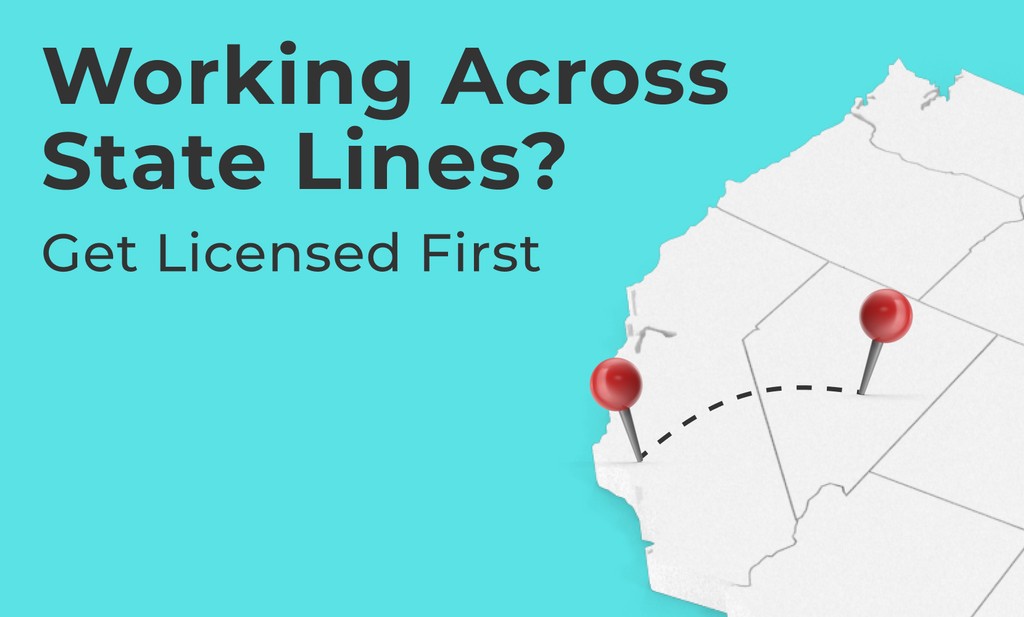Your principal construction work is in Nevada, but you’ve been asked to work on a project in California. Or, as a contractor, you work both in Washington State and Oregon. When working in different states, it’s important to understand the requirements of each state so your business remains in compliance regarding licensing, insurance, and surety bonds. Following, we discuss a few examples to illustrate what is required when crossing state lines to work.
Construction Work in California
Each state has contractor licensing requirements. For example, in California, contractors must apply for one of four licenses that best suits their business. These include a Class A: General Engineering Contractor License, Class B: General Building License, Class B-2: Residential Remodeling Contractor License, and Class C: Specialty Contractors.
If you are licensed in Nevada and want to work on a project in California, you must obtain a California contractor’s license through reciprocity. This requires meeting specific requirements, submitting the necessary paperwork to the California Contractors State License Board (CSLB), and taking specific exams. You must apply for a license in a classification that appears on the CSLB's Reciprocal Classifications List. You also must hold an active license in good standing in Nevada for at least five years. In addition, you need to submit a Request for Verification of License form to the CSLB and complete the Application for Original Contractor's License. As part of the reciprocity process, the CSLB may waive the trade exam portion of the licensing requirements. However, you may still need to pass the California Law and Business Exam, even with reciprocity. You also must show documentation of your work experience and education, submit fingerprinting and background checks, and pay fees and other administrative costs.
In addition to Nevada, California has reciprocal agreements for contractor licensing with Arizona and Louisiana.
Nevada recognizes general contractor, electrical, and plumbing licenses from Arizona, California, and Utah.
Construction Work in Oregon
Contractors who work in Washington State, Arizona, Nevada, California, or any other state and want to expand their businesses into Oregon must register with the Oregon Secretary of State as a foreign limited liability company (LLC). They must obtain the appropriate license and endorsements for the type of work: Residential, Small Commercial, or Large Commercial. Out-of-state contractors must also complete a pre-licensing exam, pass the Oregon Construction Contractors Board (CCB) licensing exam, and meet all bond and insurance requirements. For example, a contractor must also carry Workers’ Compensation (if they have employees) and General Liability insurance. There are specific requirements for General Liability limits that apply depending on the type of contractor license.
Applicants who have passed the NASCLA Accredited Examination for Commercial General Building Contractors do not have to complete the 16-hour pre-license training, but they must pass the Oregon exam covering laws, rules, and business practices.
Construction Work in Arizona
Arizona offers contractor license reciprocity with three neighboring states: California, Nevada, and Utah.
Out-of-state contractors looking to work in Arizona must obtain a contractor’s license from the Arizona Registrar of Contractors, pass trade and business management exams, register with the Arizona Corporation Commission and Department of Revenue, and post a bond. Contractors will also need at least four years of practical or management trade experience, with at least two years within the last ten years related to the type of construction they are applying for.
Working on projects in nearby states is one way of expanding your construction business. Just be sure to comply with each state’s requirements to avoid fines and penalties.
NOTE: Please review all applicable state law and regulations and consult with your legal professional concerning your compliance as to your business operations.

